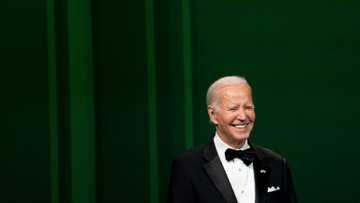US high court sets new rule for firms requiring work on religious holidays

Source: AFP
PAY ATTENTION: Never miss breaking news – join Briefly News' Telegram channel!
The US Supreme Court set a tougher standard Thursday for companies to be able to claim "undue hardship" when requiring employees to work on religious holidays.
It ruled unanimously in the case of former postal worker Gerald Groff, whose requests to not work on Sundays due to his Christian beliefs were not accommodated by the US Postal Service (USPS).
Groff resigned after not meeting USPS requirements to work some Sundays and sued on the basis of his constitutional right to practice his faith.
Successive lower courts had rejected his complaint, saying USPS made efforts to accommodate him and had proved under the legal standard that it would suffer "undue hardship" to its business if it had to find other workers to fill his spot.
In their ruling, the high court justices did not focus on Groff's religious rights.
Instead, the issue was how "undue hardship" was defined -- how much difficulty a business would have to incur to justify forcing a worker to work on a religious holiday.
PAY ATTENTION: Click “See First” under the “Following” tab to see Briefly News on your News Feed!
A 46-year-old precedent case, Trans World Airlines v. Hardison, said "undue hardship" could be defined as anything more than minimal -- "de minimis" -- cost to the business.
"De minimis" then became a standard that religious rights advocates say essentially allowed businesses to reject any faith-related work request by an employee.
"Hardison's 'de minimis' test makes a mockery of the English language and no party truly defends it today," Groff's attorney Aaron Streett told the court in an April hearing.
Attorneys on both sides of the case agreed on that specific issue, and it was on that that the justices ruled Thursday.
The Hardison phrase "more than a de minimis cost" is insufficient for establishing "undue hardship," the court ruled.
"Under any definition, a hardship is more severe than a mere burden," it said.
In future cases, it said, if a company wants to prove it cannot meet an employee's religious scheduling needs, the employer must show that it "would result in substantial increased costs" to its business.
The ruling was not an absolute victory for Groff, however. The Supreme Court sent the case back to the appeals court for a rehearing under the new standard.
USPS will then be under pressure to prove that Groff's needs would add "substantial increased costs" to its business.
PAY ATTENTION: Сheck out news that is picked exactly for YOU ➡️ click on “Recommended for you” and enjoy!
Source: AFP



